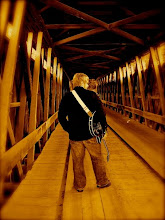Today I got to thinking about what it means for the church to physically be where people are. There's a few different directions this concept can go. The first is perhaps the simplest. We've had a rash of churches moving out of our city limits for the grassy knolls of the countryside where new buildings can be built without regulation and where signs are not distractions to passing motorists. Another added benefit/problem of moving out of town is the ability to handselect attenders. Let's face it, most people new to a community or seeking a church family are not first going to check out a church in the countryside. Of course, this isn't a hard and fast rule, but it would seem to make the most logical sense (and, since I'm Reformed, I'm allowed to tie logic to faith). For many churches, this ability to handpick congregants could be a big plus. After all, those with vehicles and the will to drive to church are also those most likely to tithe. People who walk to church could have any variety of issues - homelessness, lack of transportation, low commitment, etc. So I guess the real issue is deciding who your target group is, determining what your vision is and adjusting your location likewise.
Many churches are guilty of the we-got-given-a-property-so-we're-building-there syndrome. Maybe its not a reality where you are (although I bet it is if you look for it), but in every community in which I've lived (South Dakota, Iowa, New York, Kentucky, Michigan), churches love to set themselves up just outside of town or on the outskirts of town. You really have to ask yourself why. Some churches move to these locations because they can. Given our economy and the regulatory practice of many municipal boards, that might be a reality. Some churches deem their current buildings unable to meet their current ministry needs, for whatever reason (age of building, size of building, etc.). This seems more legitimate, but leaving town should be a last resort, as far as I'm concerned. Some churches, particularly in the Midwest, sit where communities used to sit - that is, they are the only building left in "town", or the families who built the church simply thought the current location would be some sort of half-way point. This is a harder reality, but it seems to me that the latter discussion should still be pertinent. Some churches move there so as not to offend the elderly person donating the plot of land. This seems somewhat short-sighted. Some churches move simply because they don't think through the situation logically (and get caught up in the excitement of something new). That seems undiscerning at best - dumb at worst. The final option for a church moving out of town is that they particularly decide they would rather minister to those who have the means to come to where they are. That seems simply contrary to the Gospel.
What I'm not saying is that the location of the church determines its missional nature. I truly believe that a downtown or neighborhood location throws open the doors of possibility and stands as a continual reminder to the missional reality of what we must do, but many churches have put themselves on the outskirts of town ideologically. This point, to me, is far more important than where a building is located. There are really two perspectives on the church, borrowed from Frost & Hirsch:
- CHURCH AS REFUGE FROM THE WORLD: The church building is seen as the gathering place of the saved at least once per week to escape the onslaught of modern society and the world around. There is a holiness to the building that is fundamentally different than the buildings of daily life.
- CHURCH AS LAUNCHPAD FOR MISSION: The church building is just another building in our community where we live our Christian lives. The difference of corporate worship or discipleship is that we gather at this central location to sharpen eachother's witness so that we may live our daily lives more consistently.
For years, the church has asked people to come to it to get saved, come to it to grow in its faith, come to it to experience the full blessing of Christ. While Jesus did spend time in the synagogue, it was on hillsides, in homes and in Samaria where He taught His greatest lessons. For thousands of years, there have been great learned teachers in institutions or churches that have been willing to share their knowledge and understanding with anyone who would come to them. Consequently, hoardes of white collar, upper middle class students have gone through mega-church youth groups and attended Bible colleges. Jesus ministered to the prostitutes, tax collectors and the unclean. If He had set up shop in Nazareth and asked all these folks to come to Him, they would not have. Because He went to them and did "church" there, He gained the audience He desired.
Get your milkcrate - we're going street preaching!

No comments:
Post a Comment